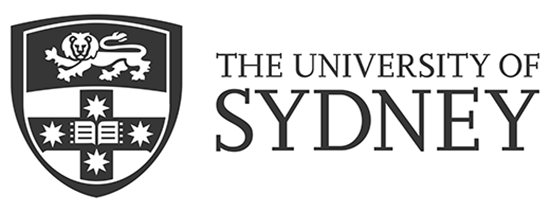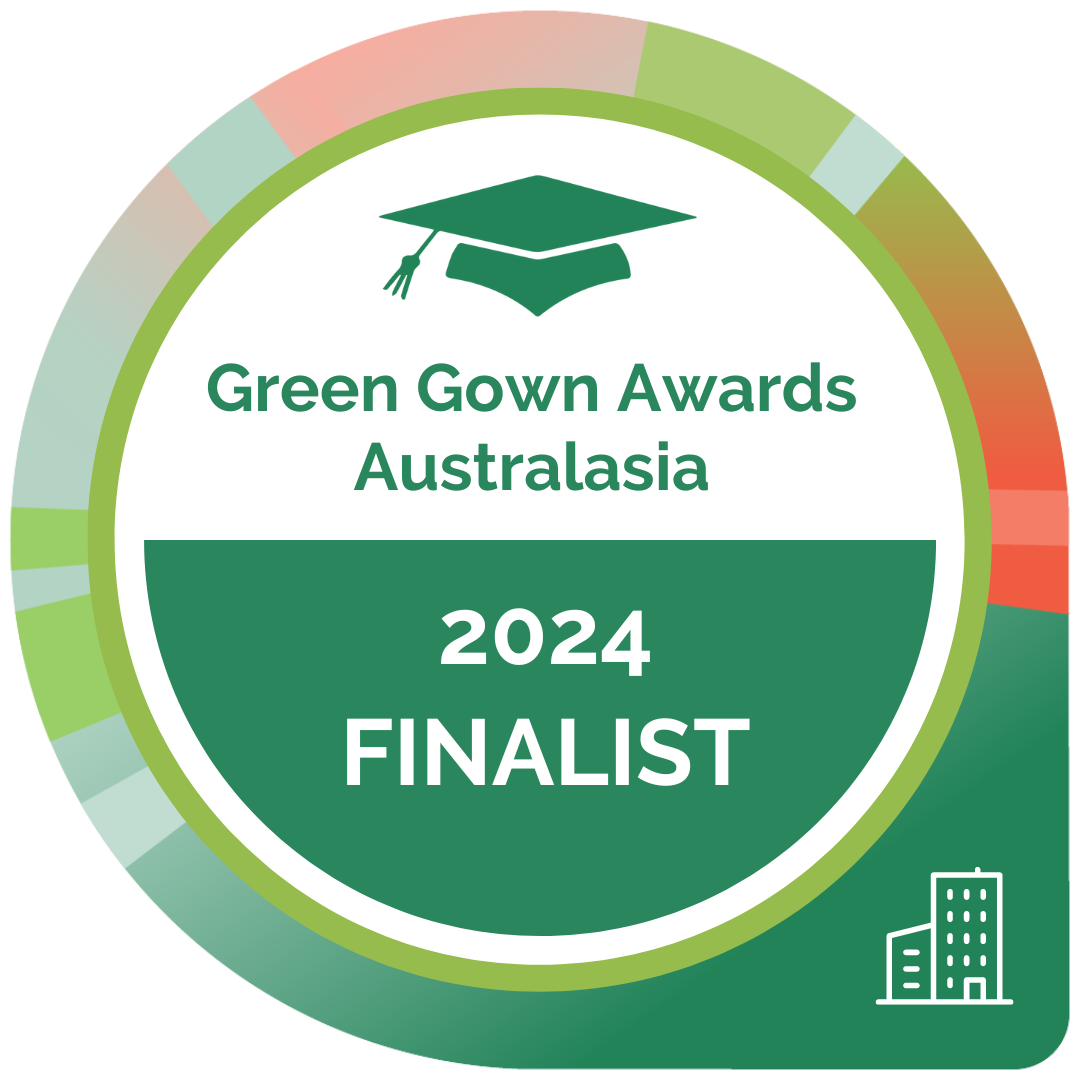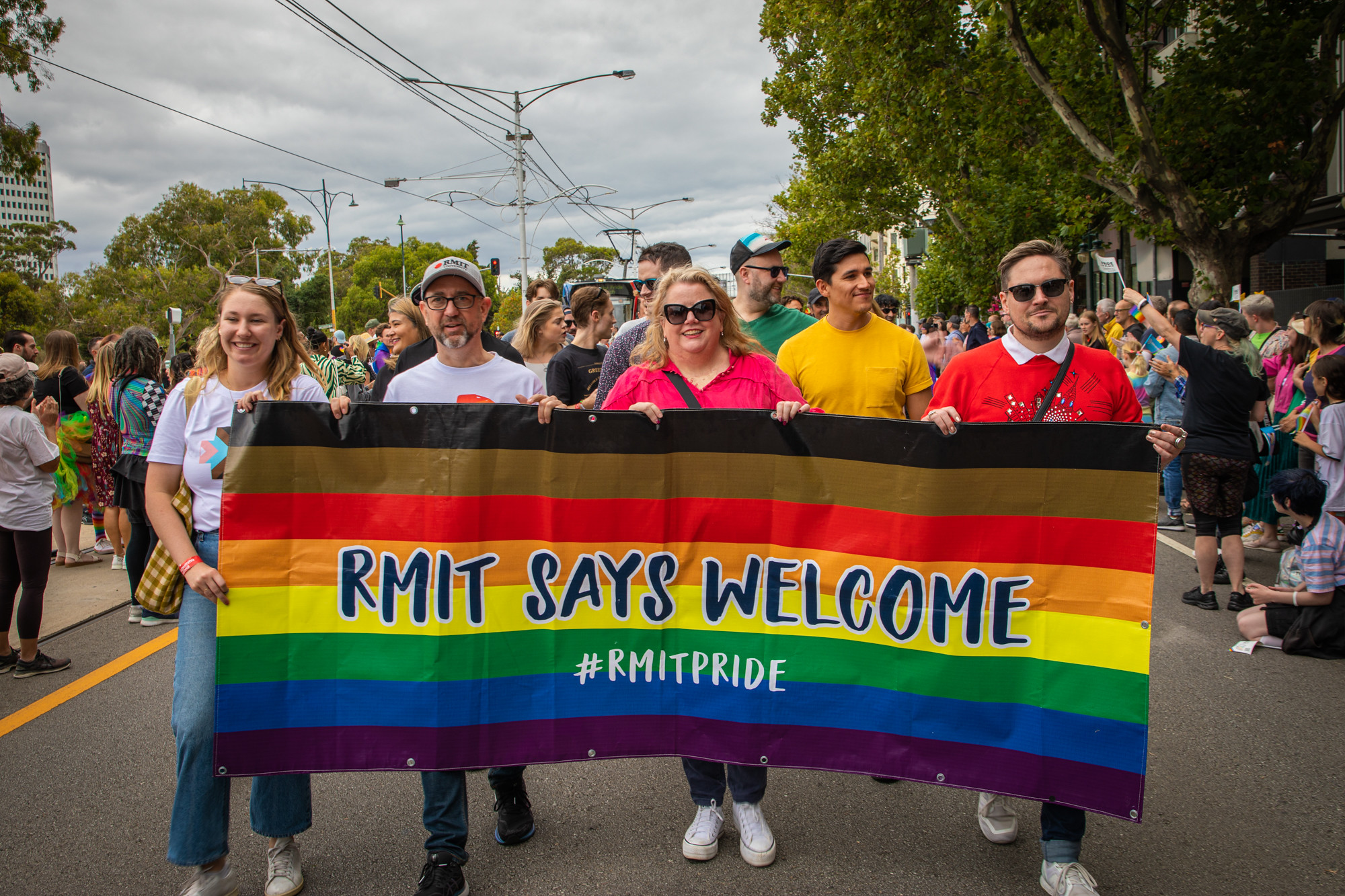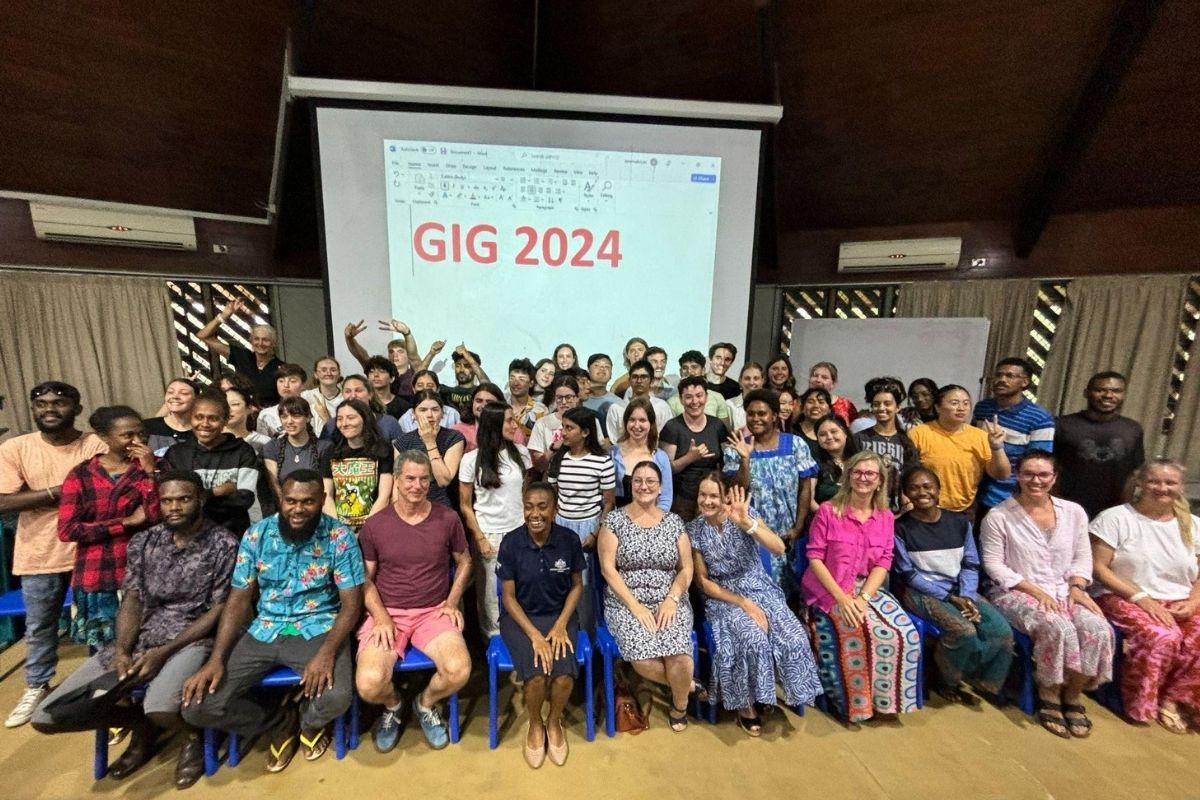Diversity, Equity and Inclusion category
The University of Sydney Library has adopted and integrated sector-leading Aboriginal and Torres Strait Islander cultural protocols that promote culturally safe practices across its services, spaces, and resources. This initiative, the first of its kind in an Australian academic library, addresses critical issues such as access to culturally sacred materials, the presence of racism and inaccuracies in historical content, and the representation of First Nations voices. In the early stages of implementation, the protocols have influenced the design and operation of both physical and digital spaces within the Library, including the Fisher Library rooftop terrace, the Library’s website, and commissioned artworks that connect the University’s spaces with local Gadigal Country.
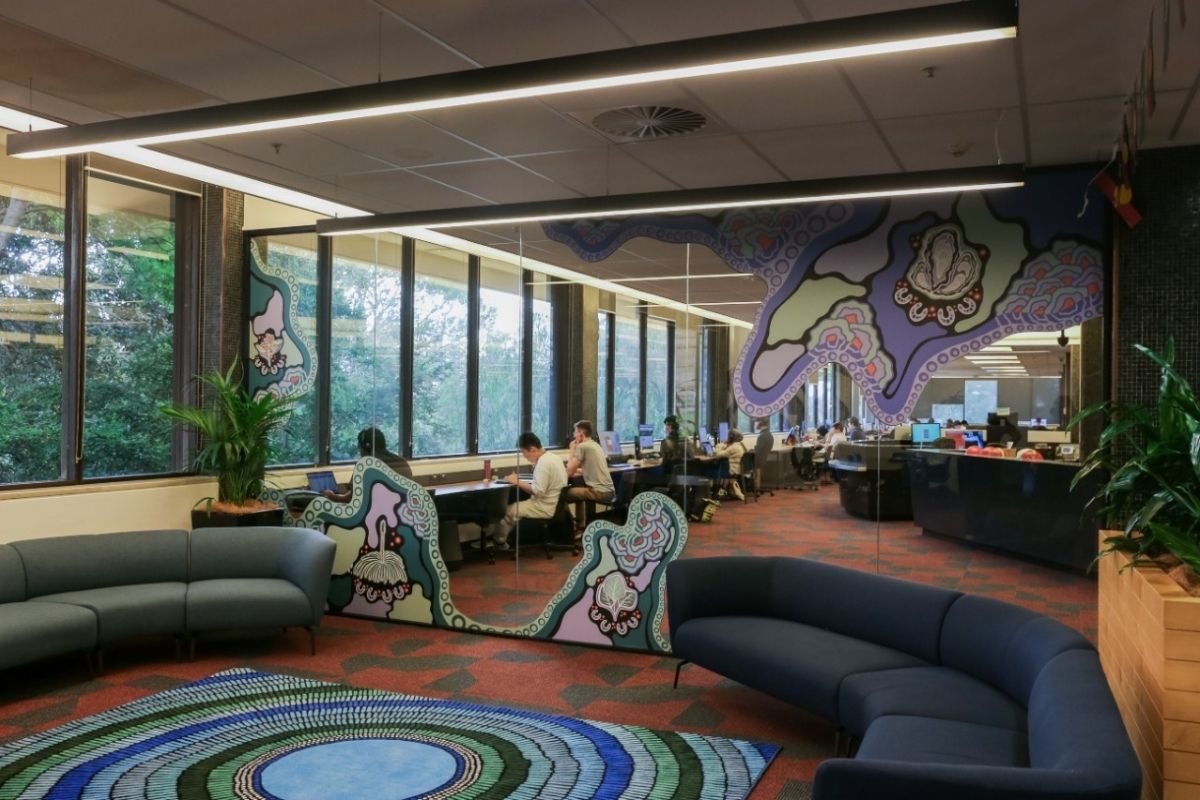
Environmental and Social Benefits
- Sustainable Landscaping: The Fisher Rooftop Terrace, revitalised with Indigenous gardens designed by the Aboriginal-owned social enterprise IndigiGrow, promotes sustainable landscaping through the use of native species and a self-wicking watering system. This green infrastructure reduces urban heat and improves air quality while supporting local biodiversity.
- Cultural Safety and Inclusion: By embedding Aboriginal and Torres Strait Islander cultural protocols across the library’s operations, the initiative fosters a culturally safe environment, enhancing the sense of belonging and respect for Indigenous students, staff, and community members.
- Educational Enhancement: The inclusion of culturally significant spaces and digital resources enriches the educational experience by integrating Indigenous knowledge and perspectives, promoting awareness and reconciliation among the broader university community.
Leadership and Engagement
- Collaborative Partnerships: The initiative’s success is underpinned by strong partnerships with local Indigenous communities and businesses, such as IndigiGrow and artist Jessie Waratah. These collaborations ensure the authenticity of the cultural elements integrated into the library’s spaces and services.
- Staff and Student Involvement: Over 30 library staff members participated in various phases of the rooftop terrace project, with the opening attracting over 300 staff and students. 16 Aboriginal and Torres Strait Islander students contributed to discussions on cultural wellbeing and safety in digital spaces. Additionally, 20 Indigenous students were consulted to co-design the Aboriginal and Torres Strait Islander student spaces within the Library.
- Ongoing Indigenous Engagement: The Library continues to engage with Indigenous stakeholders to ensure the ongoing relevance and cultural integrity of its spaces and services, exemplifying a commitment to long-term collaboration and cultural sustainability.
Significance to the Sector
- Pioneering Cultural Protocols: As the first academic library in Australia to adopt comprehensive Aboriginal and Torres Strait Islander cultural protocols, this initiative sets a new standard for cultural sensitivity and inclusiveness within the sector. The protocols influence all aspects of library operations, from collection development to the design of physical and digital spaces.
- Replicable Model: The initiative offers a blueprint for other institutions seeking to integrate Indigenous perspectives and practices into their operations. Its emphasis on sustainability, cultural safety, and community partnership makes it a replicable model for educational institutions and other sectors.
- Cultural and Environmental Stewardship: The initiative’s integration of cultural and environmental sustainability principles reflects a holistic approach to library management, demonstrating how cultural respect and environmental responsibility can coexist and enhance institutional operations.
Wider Societal Impact
- Cultural Preservation and Education: By creating culturally significant spaces and incorporating Indigenous cultural protocols, the initiative contributes to the preservation of Aboriginal and Torres Strait Islander cultures. It also educates the wider university community on the importance of cultural respect and sustainability.
- Social Cohesion and Reconciliation: The project fosters social cohesion by promoting an inclusive environment where Indigenous voices are heard and respected. This contributes to broader societal goals of reconciliation and equitable representation within the academic setting.
- Global Relevance: The initiative’s innovative approach to integrating Indigenous cultural protocols into institutional practices has the potential to influence sectors beyond education, offering insights into how organisations worldwide can foster culturally safe and inclusive environments.
The University of Sydney Library’s submission “Creating Culturally Safe and Significant Spaces” illustrates a new approach to embedding Aboriginal and Torres Strait Islander cultural protocols into the fabric of university operations. By fostering cultural safety, promoting sustainability, and enhancing educational outcomes, this collection of initiatives sets a new benchmark for inclusivity and cultural stewardship in academic libraries. Its success demonstrates the powerful impact of integrating Indigenous perspectives into institutional practices and offers a replicable model for other organisations seeking to advance diversity, equity, and inclusion.
Top 3 learnings
Supported by

Category finalists
Diversity, Equity and Inclusion/Highly Commended
Diversity, Equity and Inclusion/Highly Commended
Diversity, Equity and Inclusion/Winners
Diversity, Equity and Inclusion/Winners
Past winners
Benefitting Society/Winners
Benefitting Society/Winners
Diversity, Equity & Inclusion in Sustainability/Winners
Diversity, Equity & Inclusion in Sustainability/Winners
Climate Action/Winners
Climate Action/Winners
Sustainability Institution of the Year/Winners
Sustainability Institution of the Year/Winners
Creating Impact/Winners
Creating Impact/Winners
Creating Impact/Winners
Creating Impact/Winners
Top 3 learnings
Diversity, Equity and Inclusion category
The University of Sydney Library has adopted and integrated sector-leading Aboriginal and Torres Strait Islander cultural protocols that promote culturally safe practices across its services, spaces, and resources. This initiative, the first of its kind in an Australian academic library, addresses critical issues such as access to culturally sacred materials, the presence of racism and inaccuracies in historical content, and the representation of First Nations voices. In the early stages of implementation, the protocols have influenced the design and operation of both physical and digital spaces within the Library, including the Fisher Library rooftop terrace, the Library’s website, and commissioned artworks that connect the University’s spaces with local Gadigal Country.

Environmental and Social Benefits
- Sustainable Landscaping: The Fisher Rooftop Terrace, revitalised with Indigenous gardens designed by the Aboriginal-owned social enterprise IndigiGrow, promotes sustainable landscaping through the use of native species and a self-wicking watering system. This green infrastructure reduces urban heat and improves air quality while supporting local biodiversity.
- Cultural Safety and Inclusion: By embedding Aboriginal and Torres Strait Islander cultural protocols across the library’s operations, the initiative fosters a culturally safe environment, enhancing the sense of belonging and respect for Indigenous students, staff, and community members.
- Educational Enhancement: The inclusion of culturally significant spaces and digital resources enriches the educational experience by integrating Indigenous knowledge and perspectives, promoting awareness and reconciliation among the broader university community.
Leadership and Engagement
- Collaborative Partnerships: The initiative’s success is underpinned by strong partnerships with local Indigenous communities and businesses, such as IndigiGrow and artist Jessie Waratah. These collaborations ensure the authenticity of the cultural elements integrated into the library’s spaces and services.
- Staff and Student Involvement: Over 30 library staff members participated in various phases of the rooftop terrace project, with the opening attracting over 300 staff and students. 16 Aboriginal and Torres Strait Islander students contributed to discussions on cultural wellbeing and safety in digital spaces. Additionally, 20 Indigenous students were consulted to co-design the Aboriginal and Torres Strait Islander student spaces within the Library.
- Ongoing Indigenous Engagement: The Library continues to engage with Indigenous stakeholders to ensure the ongoing relevance and cultural integrity of its spaces and services, exemplifying a commitment to long-term collaboration and cultural sustainability.
Significance to the Sector
- Pioneering Cultural Protocols: As the first academic library in Australia to adopt comprehensive Aboriginal and Torres Strait Islander cultural protocols, this initiative sets a new standard for cultural sensitivity and inclusiveness within the sector. The protocols influence all aspects of library operations, from collection development to the design of physical and digital spaces.
- Replicable Model: The initiative offers a blueprint for other institutions seeking to integrate Indigenous perspectives and practices into their operations. Its emphasis on sustainability, cultural safety, and community partnership makes it a replicable model for educational institutions and other sectors.
- Cultural and Environmental Stewardship: The initiative’s integration of cultural and environmental sustainability principles reflects a holistic approach to library management, demonstrating how cultural respect and environmental responsibility can coexist and enhance institutional operations.
Wider Societal Impact
- Cultural Preservation and Education: By creating culturally significant spaces and incorporating Indigenous cultural protocols, the initiative contributes to the preservation of Aboriginal and Torres Strait Islander cultures. It also educates the wider university community on the importance of cultural respect and sustainability.
- Social Cohesion and Reconciliation: The project fosters social cohesion by promoting an inclusive environment where Indigenous voices are heard and respected. This contributes to broader societal goals of reconciliation and equitable representation within the academic setting.
- Global Relevance: The initiative’s innovative approach to integrating Indigenous cultural protocols into institutional practices has the potential to influence sectors beyond education, offering insights into how organisations worldwide can foster culturally safe and inclusive environments.
The University of Sydney Library’s submission “Creating Culturally Safe and Significant Spaces” illustrates a new approach to embedding Aboriginal and Torres Strait Islander cultural protocols into the fabric of university operations. By fostering cultural safety, promoting sustainability, and enhancing educational outcomes, this collection of initiatives sets a new benchmark for inclusivity and cultural stewardship in academic libraries. Its success demonstrates the powerful impact of integrating Indigenous perspectives into institutional practices and offers a replicable model for other organisations seeking to advance diversity, equity, and inclusion.
Supported by

Related finalists
Diversity, Equity and Inclusion/Highly Commended
Diversity, Equity and Inclusion/Highly Commended
Diversity, Equity and Inclusion/Winners
Diversity, Equity and Inclusion/Winners
Other finalists
Climate Action

Driving Towards Tomorrow’s Campus with Vehicle-to-Grid EV Technology
As part of Flinders University’s drive to innovate and become a leader in climate action, the University launched its Vehicle-to-Grid (V2G) initiative. This involved installing and maintaining 20x V2G and smart chargers for its growing electric vehicle fleet. Leveraging 100% renewable energy generated by ENGIE’s Willogoleche Wind Farm and Flinders University’s solar power systems, this enables the storage of renewable energy in EV batteries to be discharged on campus during peak demand periods. Hence, allows for these EV fleets to operate as a Virtual Power Plant (VPP) to deliver peak demand management and optimization of behind-the-meter generation.
Overall, this initiative demonstrates the reliability and scalability of bi-directional and uni-directional smart-charging systems for EVs in reducing GHG emissions while facilitating teaching, research, and innovation opportunities. Moreover, it exemplifies a sustainable and innovative solution to scale energy storage technology and increase renewables.
Sustainability Champion – Staff/Winners

Brandan Espe
Environmental Officer / Acting Grounds Supervisor
Brandan has brought over 50 federally listed Endangered species of plant into the James Cook University living collection, many of which have never been cultivated and are found in no other collection in the world.
Of these, over half have been sustainably wild collected, inclusive of field and clone data, so they can be used for ongoing conservation, research and teaching, the remaining being sourced from private and partner organisations through favours of service or trades.
He personally funded the project from 2019-2022, until funding was awarded for the program due to its success, with the program now being engrained into the Universities landscapes for ongoing management should he leave JCU, creating a threatened species legacy collection.
The program has now expanded beyond this, with an additional 48 species now funded for further addition, some of which are only known from less than 5 sightings in history.
Student Engagement

Sustainability Leaders creating real impact!
La Trobe created a unique Sustainability Leaders volunteering program to increase engagement with students on campus and empower them to act against waste and promote sustainability. It included the following initiatives:
- Promoting the reusable crockery implementation,
- Increasing knowledge action of other students on campus to diversion comingled recycling and organic waste from landfill.
- Focus on waste audits and data,
- Improved signage through new waste posters for students living on campus.
- Collaboration with Cirka (our cleaning and waste partner) to create a waste wall and;
- Learning all things sustainability (net zero, biodiversity, waste, reusables, engagement)
These initiatives yielded significant results and with a reduction in waste contamination by almost 40% at the residential buildings and engagement with over 80 groups of people for the Reusable Revolution.
Creating Impact

Where knowledge meets habits: Empowering students for a sustainable tomorrow
Our online Sustainability Challenges offer participants an engaging, self-paced learning experience centered around a specific United Nations Sustainable Development Goal (UNSDG). Requiring minimal resourcing and at zero-cost to participants, we’ve created replicable, compact, scalable, and impactful learning opportunities that result in real impact.
The Challenges follow a structured process that moves participants from knowledge gain to simple action to celebration, to establish small but mighty habits relating to waste and carbon emissions. This approach recognises that knowledge alone is often insufficient to drive behaviour change, and that ease of action and celebration are crucial components in creating sustainable habits.
Sustainability Champion – Staff/Winners

Catherine (CeeJay) Donovan
Veterinary nurse – Anaesthesia
From establishing the Massey Vet School Green Team to leading impactful initiatives, my commitment to environmental sustainability has been making waves. With the help of my team, I have accomplished numerous small, yet meaningful actions, including integrating a sustainability lecture for final year vet students and implementing battery recycling alongside rechargeable battery use. Our larger projects encompass the introduction of green waste and soft plastics recycling bins, an energy audit resulting in power-saving measures, and playing a part in a successful rubbish audit. I spearheaded the ‘6 in 6’ campaign, empowering individuals with six simple steps for workplace sustainability. Through the SustainaVet social media pages I help to educate and inspire peers nationwide. As the Massey School of Veterinary Science sustainability champion, I had the privilege of speaking at the annual veterinary conference on sustainability in clinical practice. Currently I’m conducting pioneering research on responsible cat waste disposal. Together, we’re forging a greener future, one initiative at a time.
Sustainability Champion – Student

Louis Walmsley
SDG Coordinator Monash Association of Sustainability, Office Bearer Monash Student Association’s Environmental and Social Justice Department, Masters of Environment and Sustainability Student
Louis is an exceptional student sustainability leader at Monash University. His passion and dedication to sustainability have made a significant impact on the community. Louis’s values revolve around sustainability, which is evident upon meeting him. He actively participates in various sustainability groups, demonstrating his commitment to creating a more environmentally conscious society.
One of Louis’s notable involvements is with Precious Plastic Monash, where he organizes remarkable events and fosters collaboration among like-minded individuals, student groups, and staff. His contributions to the Monash Association of Sustainability have allowed him to conduct valuable research on plastic usage and climate action, resulting in positive changes within the university.
Through his work with the Monash Student Association, Louis has engaged hundreds of students in fun and interactive sustainability initiatives. He took the initiative to organize a sustainability food fair, which was one of the largest sustainability-related events held at Monash post-COVID. This accomplishment is a true testament to Louis’s hard work and creativity.
Louis is an outstanding student leader whose efforts in sustainability have had a lasting impact on Monash University and its community. His inspiring nature resonates with everyone who knows him.

